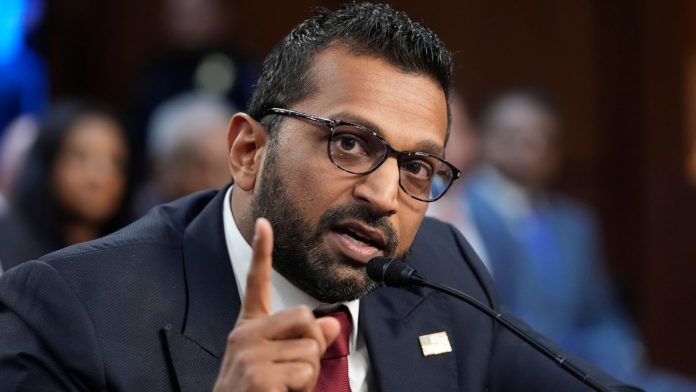In a surprising and largely undisclosed move, Indian-origin official Kash Patel has been removed from his role as the acting director of the Bureau of Alcohol, Tobacco, Firearms and Explosives (ATF), just weeks after assuming the post. This abrupt decision, confirmed by the US Justice Department, has raised eyebrows both inside and outside the agency, stirring concerns about the future direction of one of America’s most critical law enforcement bodies.
In This Article:
Patel, who was controversially holding dual roles as FBI Director and acting ATF chief, was appointed to lead the ATF on February 24, 2025. His short-lived tenure ended before the close of the month, although his name and image continued to appear on ATF’s official website and press releases until early April. His removal, quietly enacted, came without a formal announcement, drawing scrutiny over the opaque nature of the leadership change.
Why Was Kash Patel Removed?
According to White House spokesman Harrison Fields, Patel’s removal was not due to performance issues but was a temporary designation while awaiting Senate confirmations. “Director Patel was briefly designated ATF Director while awaiting Senate confirmations, a standard, short-term move,” Fields said, adding that Patel continues to “excel” in his primary role at the FBI.
Yet, the way this transition unfolded, with no formal communication and a lack of transparency even within ATF leadership, suggests underlying complexities. Reuters and the Associated Press both reported that many ATF officials were unaware of Patel’s exit until much later, sparking unease within the ranks.
Daniel Driscoll: A Surprising Successor
In another unexpected twist, US Army Secretary Daniel Driscoll has been appointed to replace Patel as the acting ATF chief—despite continuing in his current military post. This dual role is highly unorthodox, given the United States’ long-standing policy of maintaining a strict division between military functions and domestic law enforcement.
Driscoll, aged 38, brings with him a varied background. He has previously served as an advisor to Vice President JD Vance and ran for Congress in North Carolina in 2020. However, his appointment to a law enforcement role, especially while retaining control over the Army’s $187 billion budget and more than 450,000 active soldiers, has triggered debates about potential conflicts of interest and structural overreach.
Implications for ATF
The ATF plays a crucial role in investigating gun crimes, enforcing firearms regulations, and tackling arson and bombings. The constant shuffle at the top has disrupted its stability. “To see them in the situation they’re in now is just really heartbreaking,” said Peter Forcelli, a former ATF assistant director. He criticized the agency being “kicked around like a soccer ball” by political maneuvering.
Adding to this is the DOJ’s internal conversation about merging the ATF with the Drug Enforcement Administration (DEA) to streamline operations and cut costs. If implemented, this move could drastically reshape federal enforcement strategies on both firearms and narcotics.
Political Undertones
The leadership reshuffle also aligns with broader political shifts under the Trump administration. Attorney General Pam Bondi has formed a new Second Amendment task force, which includes the ATF and the Civil Rights Division. The administration has moved to reverse gun control policies set during President Biden’s term. Earlier this week, the ATF repealed its “zero tolerance” policy on revoking licenses of gun dealers with serious violations—a policy once championed by Patel.
The National Shooting Sports Foundation welcomed Driscoll’s appointment, interpreting it as a sign of reform and a recommitment to Second Amendment protections.
A Broader Narrative
Kash Patel’s brief yet controversial ATF stint reflects a larger theme within the Justice Department—one of flux, centralization of power, and a push for ideological realignment. While his removal may officially be labeled procedural, the ripple effects tell a different story. The lack of transparency, unusual appointments, and high-level political interventions hint at deeper undercurrents shaping the nation’s law enforcement strategy.
As debates continue over the future of ATF, gun control, and law enforcement independence, Patel’s removal is more than just a staffing change—it’s a signal of shifting priorities at the highest levels of American governance.
By – Jyothi




